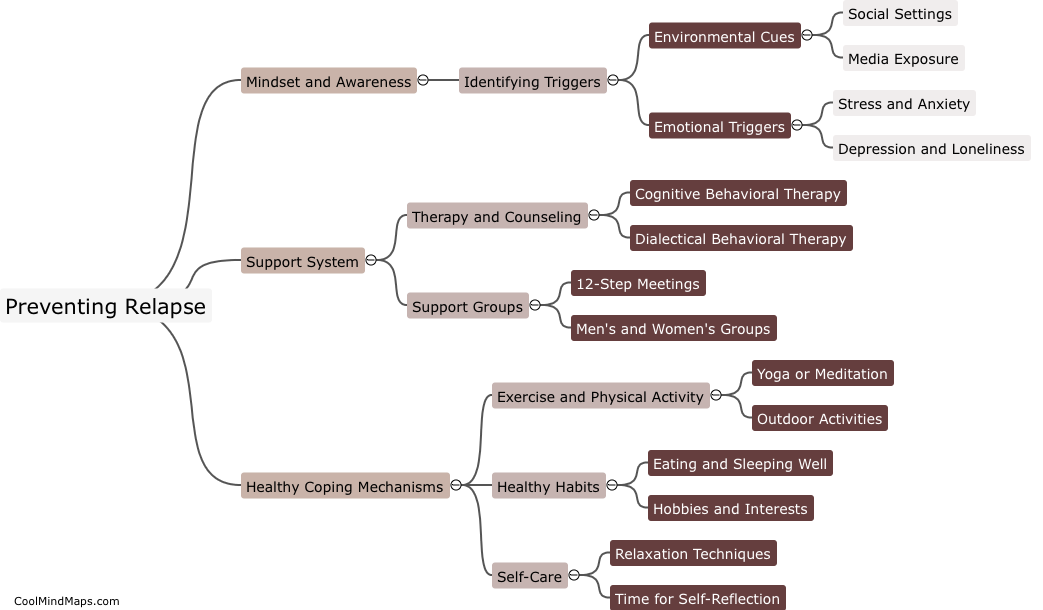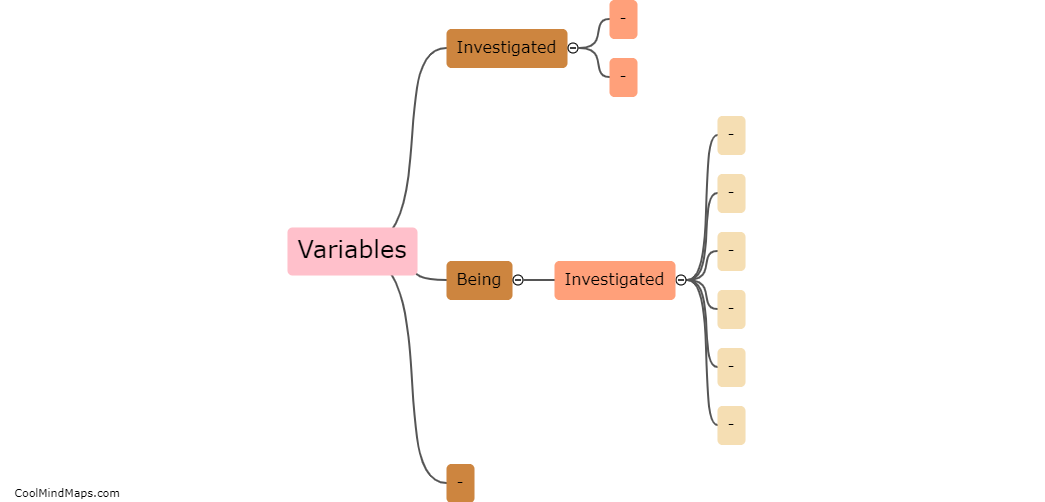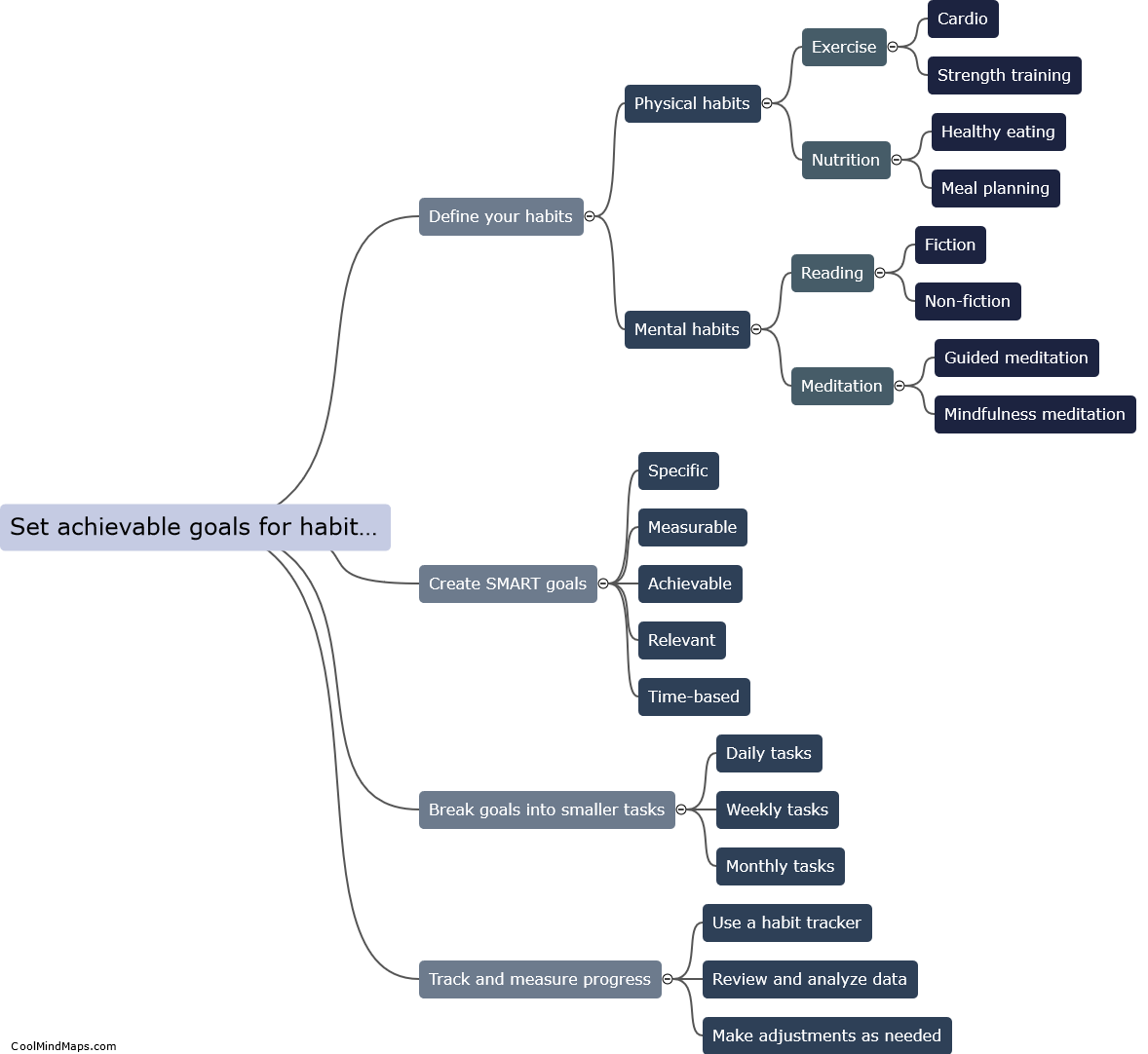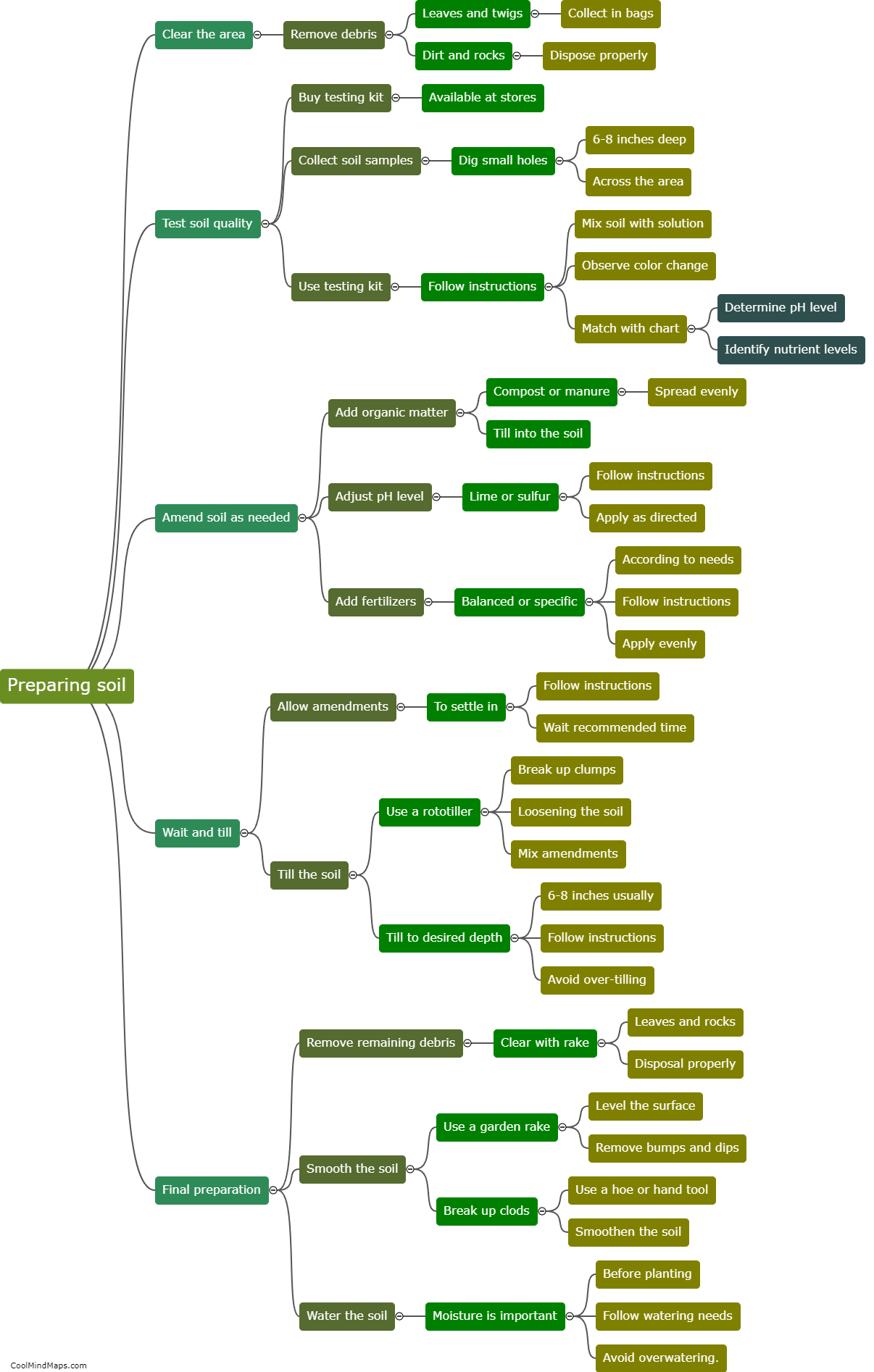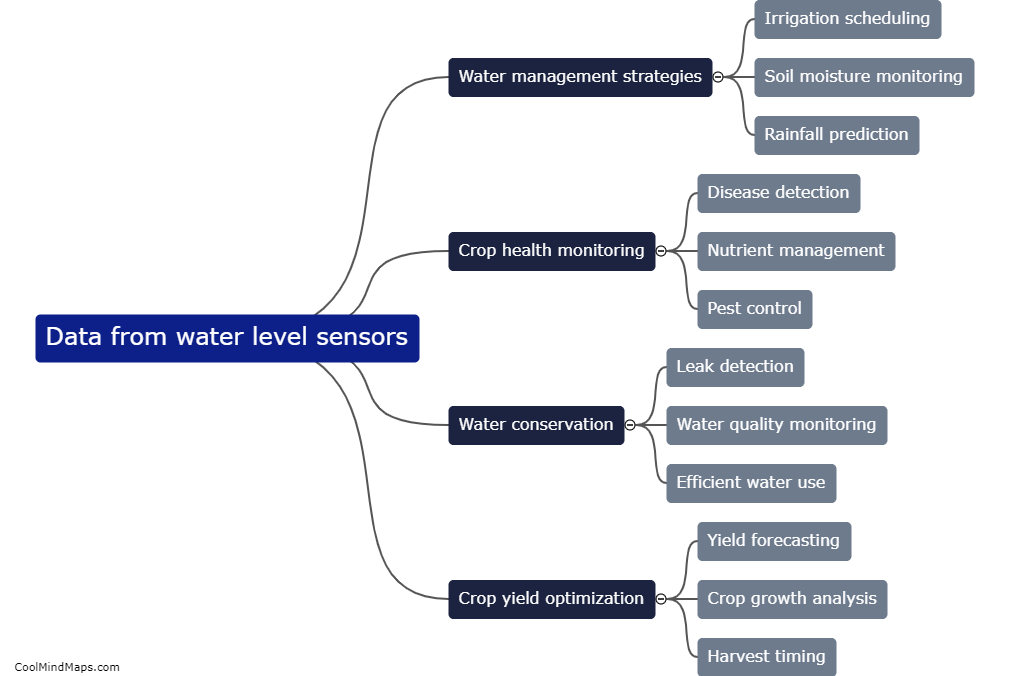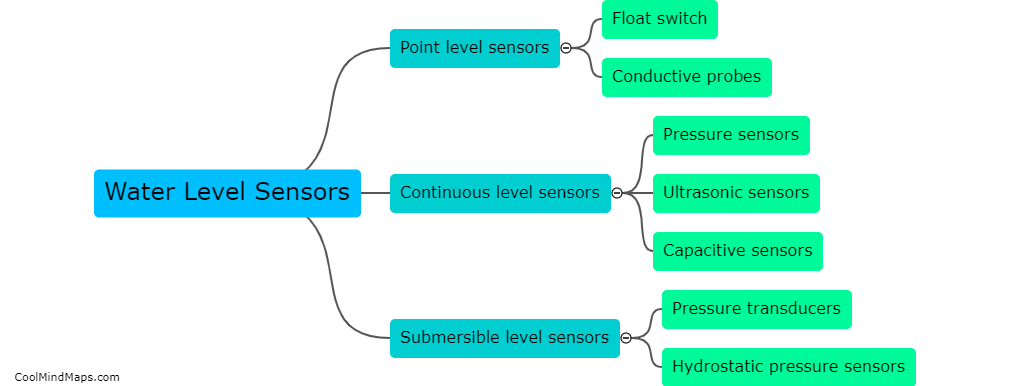What are the potential benefits of using water level sensors in irrigation?
Water level sensors can offer numerous benefits in irrigation systems. Firstly, they enable precise monitoring of water levels, allowing for accurate control of irrigation operations. This helps to optimize water usage by preventing overwatering or underwatering, ultimately saving water and reducing water costs. Additionally, water level sensors help to prevent waterlogged soil or drought conditions by alerting farmers when levels are too high or too low, allowing for timely adjustments. This not only enhances crop health and yield but also minimizes the risk of soil erosion. Moreover, water level sensors can automate irrigation processes, providing convenience and saving time for farmers. Overall, the use of water level sensors enhances irrigation efficiency, conserves water resources, and boosts agricultural productivity.
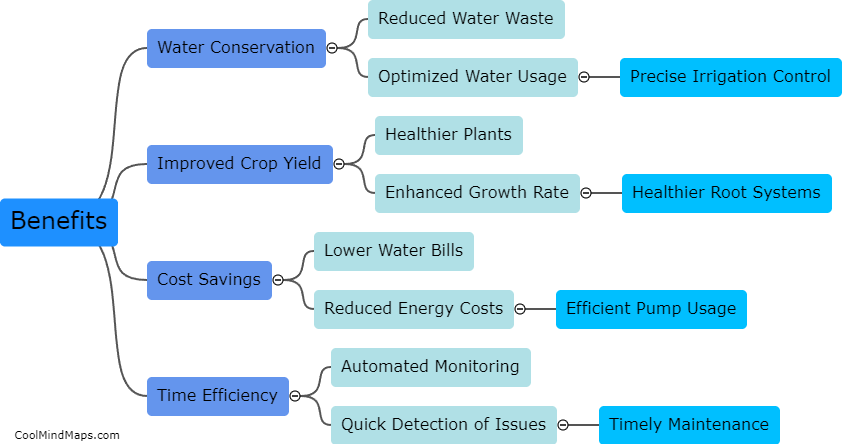
This mind map was published on 18 September 2023 and has been viewed 108 times.
